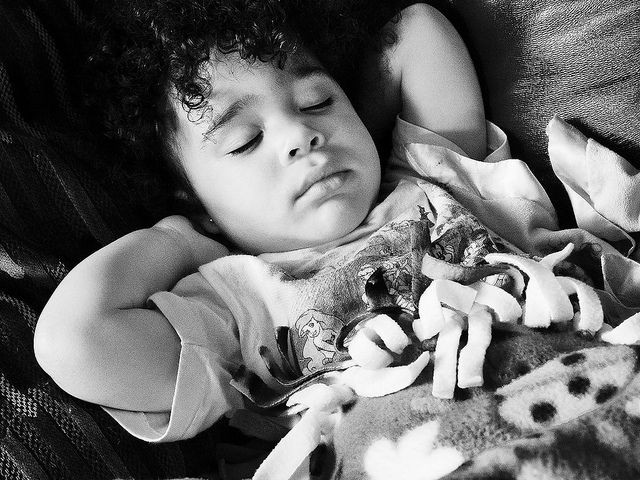Kids Who Snore A Lot May Have Undiagnosed Sleep Disorders, But Don't See Their Doctors

Kid snorers may make for an amusing gag on your local Disney Channel show, but too much or too loud snoring can often indicate more serious health problems, such as obstructive sleep apnea syndrome (OSAS).
Unfortunately, as a recent study published in The Journal of Laryngology & Otology suggests, it seems that even when parents are aware of their children’s snoring habits, they only sometimes seek the advice of their healthcare providers. The mostly Swedish study authors reached out to the caregivers of just over 1,300 randomly selected Swedish children, polling them on whether they noticed any symptoms of sleep-disordered breathing, such as snoring or choking, with their children. Of the 754 caregivers who replied back, 4.8 percent reported such symptoms having occurred in the past month, but only 31 percent reported contacting their local doctors as a result.
“Children with persistent snoring often have a reduced quality of life. In particular, this applies to children who have sleep apnea,” said lead author Dr. Gunnhildur Gudnadottir, a researcher at the Sahlgrenska Academy located within the University of Gothenburg, in a statement. “The study shows that awareness is low regarding the negative effects of breathing disturbances during sleep on children’s health and that most parents are not aware that this is something that should be investigated.”
The researchers noted the difficulty in gauging how aware parents really are about the dangers of frequent snoring, but the same could be said for pediatricians as well. In 2012, the American Academy of Pediatrics expanded its guidelines concerning childhood OSAS, recommending clinicians ask all their young patients during routine visits if they snore and to follow up with more testing if they suspect OSAS. Despite these guidelines, as well as the accepted knowledge among medical providers that sleep problems are particularly common in children and teens, OSAS and other sleep disorders still often go undiagnosed and undertreated, according to research conducted after 2012.
Aside from — or partly as a result of — poor sleep, apnea in children has been tied to everything from poor grades to chronic mouth breathing and behavioral problems. In adults, it’s been linked to worsening memory, unsafe driving, and depression.
According to a 2012 review in the Journal of Clinical Pediatric Dentistry, there’s no definitive figure on how many children suffer breathing problems during sleep in the U.S., but earlier studies have estimated it to fall somewhere around 5 percent, as with the current Swedish study.
Most cases of childhood OSAS are treatable, whether through surgery to remove the tonsils (one of its common causes), weight loss (obesity often worsens sleep apnea), or with medications. Without a drive to better educate and reach out to parents, however, many children will never receive the care they need.
“An obvious result of the study is that we must consider how parents are given information about the condition and where they can seek help,” said Dr. Gudnadottir.
Source: Gudnadottir G, Ehnhage A, Bende M, et al. Healthcare provider contact for children with symptoms of sleep-disordered breathing: a population survey. The Journal of Laryngology & Otology. 2015.



























